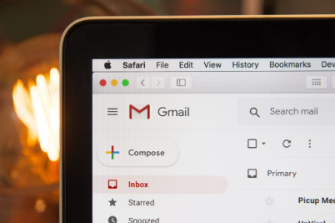Handling both personal and professional emails efficiently can be a challenging task. Gmail’s versatile features make it easier to manage multiple accounts and streamline your inbox for better productivity. With the right strategies, you can maintain balance and keep both personal and professional communication organized. In this article, let’s explore how to make Gmail work for you.

Here are some practical ways to use Gmail’s tools to keep your personal and professional emails in harmony.
The simplest way to manage personal and professional emails is to maintain separate Gmail accounts. Keeping them distinct helps you focus on work-related tasks without distractions from personal messages. Gmail’s multi-account feature allows you to switch seamlessly between accounts, ensuring easy access to both. For users wondering, “can i download gmail on huawei?”, Gmail’s app integrates smoothly with Huawei devices, or you can get the Gmail app installed via Huawei AppGallery, enabling seamless account management.
Gmail’s default inbox categories, such as Primary, Social, and Promotions, automatically sort incoming emails into relevant tabs. For professional emails, the Primary tab ensures critical messages stay visible, while personal updates or promotions are routed to other tabs. This automatic organization keeps your inbox clean and focused.
Labels act like folders but with added flexibility, allowing you to tag emails from both accounts with categories like Work, Family, or Travel Plans. Use colors to differentiate personal and professional labels for quick identification. For instance, assign blue for work-related labels and green for personal ones, creating a visually organized inbox.

Filters allow you to automatically sort emails into specific folders based on criteria such as sender, subject, or keywords. Set up filters to tag emails from your workplace or family with respective labels. For example, create a filter to mark all emails from your boss as Important and apply a work-specific label for streamlined access.
If you manage both personal and professional communication, Gmail’s Schedule Send feature ensures your emails reach recipients at the right time. This is particularly useful for sending professional emails during work hours while scheduling personal messages for evenings or weekends. Simply draft your email, click the arrow beside Send, and select a specific time and date.
Gmail’s Priority Inbox highlights the most critical emails, helping you focus on what matters most. For professional accounts, this ensures work-related emails take precedence, while personal updates are categorized separately. Customize the inbox by assigning personal emails to a different section, reducing distractions during work hours.
Gmail’s Multiple Inbox view lets you display emails from both accounts in one interface. Enable this feature through Settings > See All Settings > Inbox and customize the layout to show separate sections for personal and professional emails. This configuration provides a unified yet organized way to manage all communication.
To avoid being overwhelmed by constant alerts, customize Gmail’s notification settings for each account. Turn on notifications for professional emails during work hours and mute personal emails to minimize distractions. Conversely, enable personal notifications outside work hours for better balance.
Gmail’s advanced search operators make finding specific emails from either account effortless. Use commands like from:boss@work.com or label:Family to locate emails instantly. Saving search queries for frequently accessed emails further boosts productivity.
Managing both personal and professional emails in Gmail doesn’t have to be daunting. By separating accounts, leveraging labels and filters, and using tools like Priority Inbox and Multiple Inbox View, you can streamline your email management effortlessly. With these strategies, you can achieve balance and productivity, ensuring no email goes unnoticed.
PREV: Is the HUAWEI Mate 50 Pro Still Relevant in 2024?
NEXT: Ways to Use Gmail’s Confidential Mode for Secure Communication